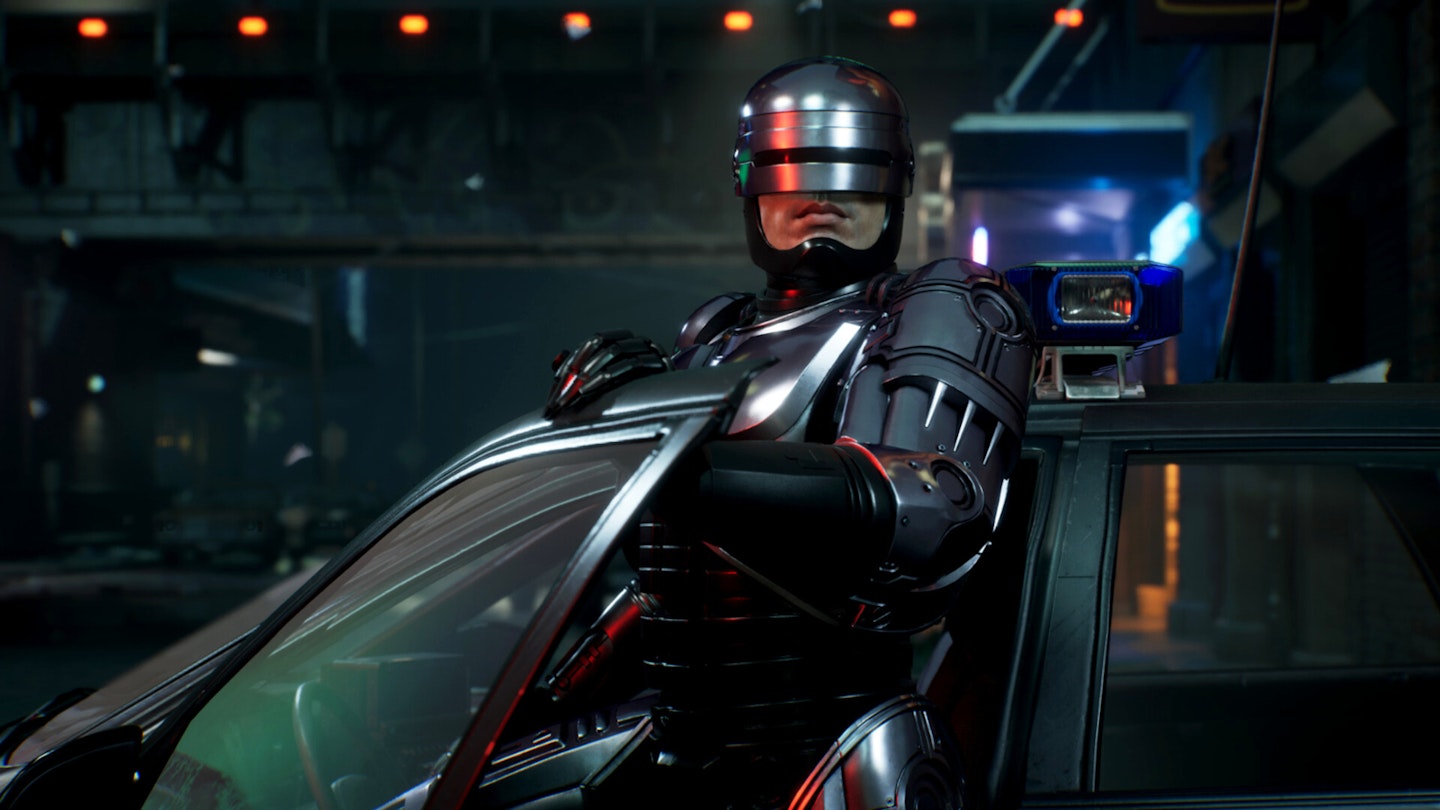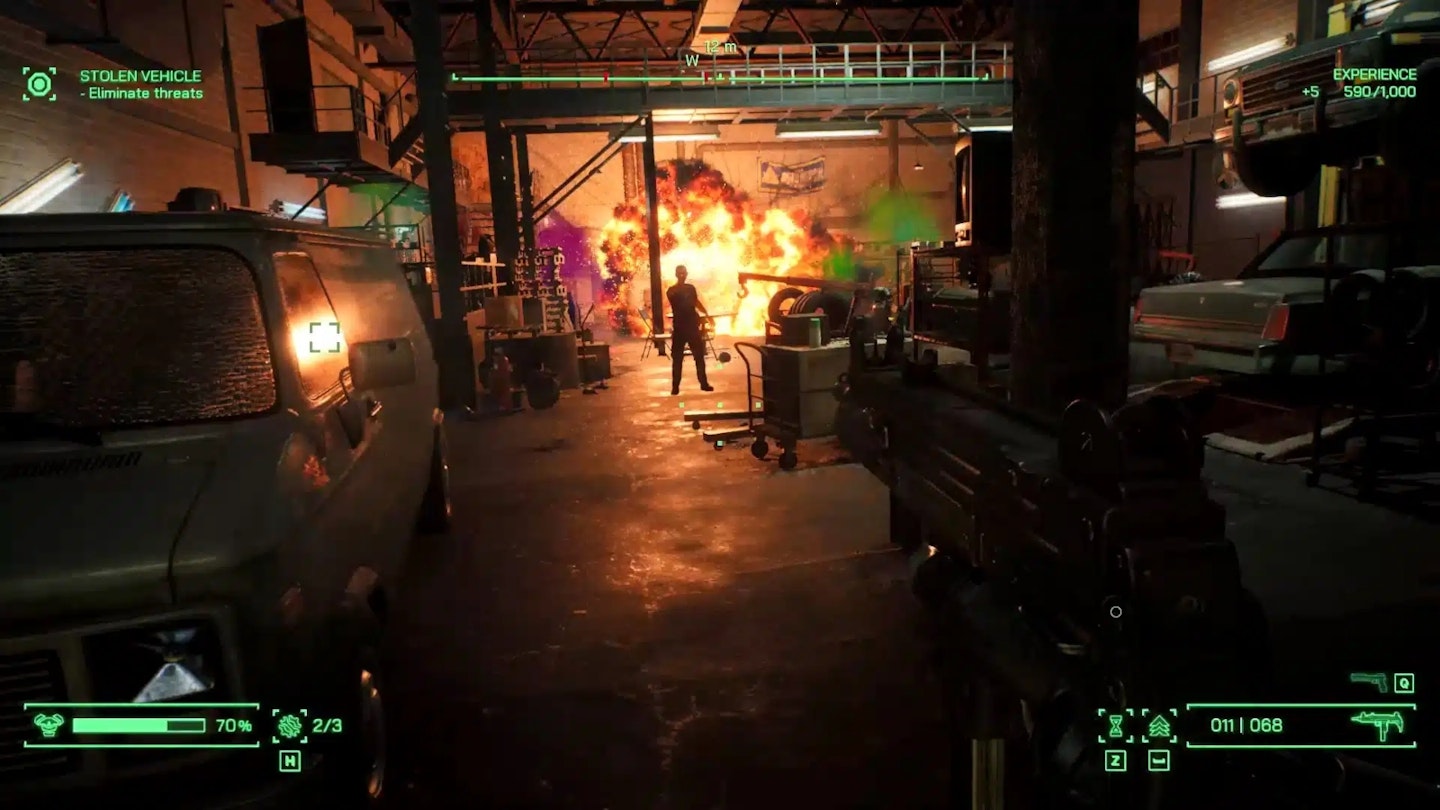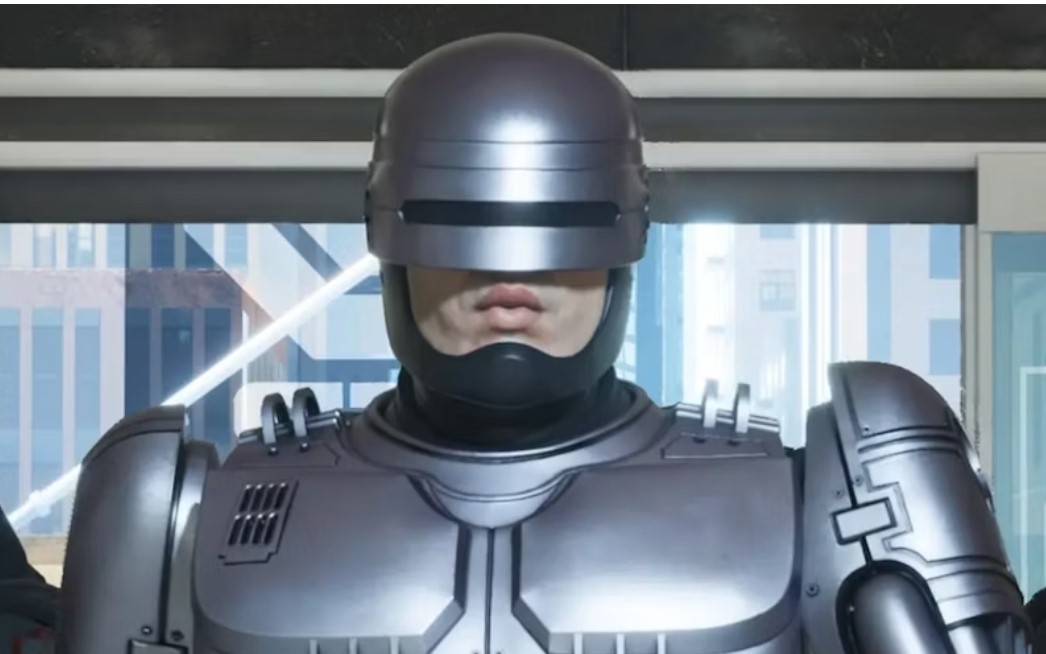The last time many of us saw Peter Weller’s RoboCop, he was unashamedly flogging meal deals for Kentucky Fried Chicken. Thank goodness, then, that Rogue City is here to replace our memories of “Colonel RoboCop” with a more sonorous swansong for Weller’s titular tinman, who returns once again for an original story set between the events of RoboCop 2 and 3.
Developer Teyon is no stranger to the world of R-Rated 80’s action cinema, either, with both 2019’s Terminator: Resistance and 2014’s Rambo: The Video Game to its name. Neither of those titles left a particularly lasting impression, all told, but Teyon seems to have found stronger footing in near-future Detroit, with RoboCop: Rogue City offering a far more accomplished homage to its source material.

From its scene-setting opening newsreel, right down to the perfectly rendered nuts and bolts of Rob Bottin’s iconic suit design, much of RoboCop: Rogue City authentically captures the look and feel of Paul Verhoeven’s original classic, with Weller’s plain-spoken delivery offering the icing on the cake for franchise fans. The central story weaves itself into the tapestry of the series’ existing canon, too, centred around Detroit Police Department’s conflict with The Torch Heads, an anarcho-punk criminal gang with links to the Nuke narcotic that acts as the central MacGuffin of RoboCop 2.
Even the game’s litany of cheesy one-liners, in danger of coming across as hokey and wooden almost anywhere else, seem to fit right at home within this B-movie world of cyberpunk satire. If anything’s missing, then, it’s perhaps some of the sociopolitical subtext that lent 1987’s RoboCop its edge. Alex Murphy’s comically techno-fascist approach to justice is certainly on display here, but is presented without comment, indulging in the gratification of his violence without asking players to really consider the insidious forces guiding his Prime Directives.
When it comes to gameplay, Rogue City refuses to compromise on the spirit of its central character, and is all the better for it.
You will, at least, be given some agency in considering how those Prime Directives are fulfilled, with multiple endings and mission outcomes depending on how you’ve closed cases, engaged with Detroit’s citizens, and maintained public order. But that attempt at player choice often feels at odds with an experience that largely encourages and celebrates the “shoot first, ask questions later” approach, resulting in a game that doesn’t always seem to quite have a handle on the kind of RoboCop story it wants to tell.
When it comes to gameplay, however, Rogue City refuses to compromise on the spirit of its central character, and is all the better for it. True to form, RoboCop neither runs — nor even lightly jogs — towards justice, but instead methodically stomps into each combat situation, soaking up enough gunfire to make the act of taking cover almost pointless. In this way, Rogue City offers a first-person shooter experience that plays quite unlike any other, not so much subverting the genre’s stereotypes as it does march right through them with the same gusto with which Murphy stubbornly ploughs concrete, plasterboard, and any other obstacle in his way.

There is, of course, plenty of shooting to be done, too. Armed with RoboCop’s iconic Auto 9 machine pistol, you’ll spend much of your time moving from room to room, scanning the area for targets (cleverly emulating the movies’ first-person HUD), and dispatching any threat within seconds. It’s a satisfying gameplay loop, albeit one whose relative ease and straightforwardness does border on the repetitive side in the later hours of the campaign. Gameplay is enriched somewhat via new weapons and upgrades for both Murphy and his Auto 9, that can be unlocked as you progress. There are also some gratifying melee abilities, but don’t expect too much in the way of expansive combat evolution over the course of Rogue City‘s twenty-hour adventure.
Outside of the firefights, Rogue City also exploits RoboCop’s skills as a detective via investigations that require you to examine evidence, converse with the locals, and deduce your findings on a case, before choosing how to respond. Players can even partake in some of the day-to-day police work that you would expect to be beneath the paygrade of a cyborg supersoldier, with side missions that range from taking civilian complaints at the office desk, to carrying inebriated felons to their jail cells.
Many of these side quests either flesh out the world or draw on existing lore from the series’ past, while others encourage exploration of Rogue City‘s multiple open spaces, each featuring familiar locations painstakingly recreated in impressive detail. Much of RoboCop: Rogue City is easy on the eye, in fact, with Unreal Engine 5 allowing Teyon to bring the grimy grandeur of dystopian Detroit to life, its many neon lights shimmering in street puddles and bouncing off of Murphy’s titanium armour.
It all makes for a generous slice of fan-servicing virtual tourism, seasoned with just enough originality of its own. The long-gestating RoboCop Returns sequel may be stuck on MGM’s shelf for now, but Rogue City‘s faithful love letter to this 80’s icon proves there’s plenty of oil to be squeezed from this legendary lawman yet.




